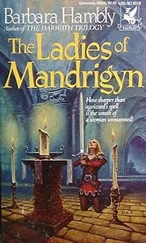Barbara Hambly - 04 Sold Down the River
Здесь есть возможность читать онлайн «Barbara Hambly - 04 Sold Down the River» весь текст электронной книги совершенно бесплатно (целиком полную версию без сокращений). В некоторых случаях можно слушать аудио, скачать через торрент в формате fb2 и присутствует краткое содержание. Жанр: mystery, на английском языке. Описание произведения, (предисловие) а так же отзывы посетителей доступны на портале библиотеки ЛибКат.
- Название:04 Sold Down the River
- Автор:
- Жанр:
- Год:неизвестен
- ISBN:нет данных
- Рейтинг книги:4 / 5. Голосов: 1
-
Избранное:Добавить в избранное
- Отзывы:
-
Ваша оценка:
- 80
- 1
- 2
- 3
- 4
- 5
04 Sold Down the River: краткое содержание, описание и аннотация
Предлагаем к чтению аннотацию, описание, краткое содержание или предисловие (зависит от того, что написал сам автор книги «04 Sold Down the River»). Если вы не нашли необходимую информацию о книге — напишите в комментариях, мы постараемся отыскать её.
04 Sold Down the River — читать онлайн бесплатно полную книгу (весь текст) целиком
Ниже представлен текст книги, разбитый по страницам. Система сохранения места последней прочитанной страницы, позволяет с удобством читать онлайн бесплатно книгу «04 Sold Down the River», без необходимости каждый раз заново искать на чём Вы остановились. Поставьте закладку, и сможете в любой момент перейти на страницу, на которой закончили чтение.
Интервал:
Закладка:
"He beat her, Rose. Beat her with a riding crop-I was there-and used her as a man would take shame on himself to use a whore. He cracked two of my ribs beating me, and I couldn't have been six years old. Once when my mother got in a fight with another woman, he nailed her up in the barrel in the corner of the barn, a flour barrel you couldn't stand up in. Does she remember none of that?"
Rose Vitrac stirred her own coffee, and with a gloved forefinger propped her spectacles more firmly onto the bridge of her nose. The small thick oval slabs of glass aged her face beyond its twenty-eight years, and gave it an air of aloofness. Behind them her hazel-green eyes-legacy of a white father and a white grandfather-were wise and kind and cynical. "If you take his money," the former schoolmistress pointed out, "you'll be able to get your own rooms. You'll no longer have to live with her."
"Would you do it?" he asked. "Spy on a man's slaves for him?"
"I don't think that I could." A line of men and women passed close to the half-empty arcade, through the chaos of hogs and cotton bales and sacks on the levee, to the gangplank of the Bonnets o' Blue. Shackled together, the slaves were bound for one of the new cotton plantations in the Missouri territory, each clutching a few small possessions done up in a bandanna.
Afternoon sun sparkled on the water, but the wind that tore at their clothing and at the flags of the riverboat jackstaffs was sharp. One woman wept bitterly. Rose turned her head to watch them, her delicate mouth somber.
"My mother was a free woman," she said. "I was never a slave. I don't think I could pass myself off as one, because I don't know all those little things, the things you learn as a child. If someone wronged me I'd go to the master, which I gather isn't done..."
"Good God, no! " January was shocked to his soul that she'd even suggest it.
Rose spread her hands. "I've never been that dependent on someone's whim," she said. Her voice was a low alto-like polished wood rather than silver-and, like Fourchet, she had the speech of an educated Creole, not the French of France. "Not even my father's. And it does something to you, when you're raised that way. When I lived on my father's plantation, after Mother's death, my friend Cora-the maid's daughter-taught me a lot, but just being told isn't the same. I think that's why Lieutenant Shaw directed Monsieur Fourchet to you."
Savagely, January muttered, "I can't tell you how honored I feel."
"But as to whether I would spy, if I could... Somebody did murder the poor butler, Ben. That the poison was meant for the master doesn't make the servant less dead."
His eyes avoided hers. "It isn't my affair." "No. Of course not. Justice for a slave isn't anyone's affair."
That this was something January himself would have said-had he not just refused to become involved in Simon Fourchet's war with his slaves-didn't help the slow pain of the anger he felt, and he looked for a time out into the square. A man cursed at the deck crew unloading bales of cotton from the steamboat Lancaster; a young woman in the black-and-white habit of a nun stopped with wide fascinated eyes to listen, and her older companion seized her arm and pulled her along. Two boys, white and black, rolled a hoop across the earth of the Place d'Armes just behind the levee, dodging in and out among the brown-leaved sycamores; a market woman in a red-and-purple-striped tignon shouted a good-natured reproof. A few yards farther the hoop bounded out of control, startling a pair of horses being led down the gangplank of the small stern-wheeler Belle Dame: a carriage team by the look of them-from somewhere in the bayous of the Barataria country, to judge from the narrow lines of the boat, the single wheel and shallow draft-matched blacks with white stockings, as if they'd waded in paint.
The nearer horse reared, plunging in fear, and the man in charge of them, tall and fair with a mouth like the single stroke of a pen, dragged brutally on the animal's bit to pull it down. For good measure he added a cut across the hocks with his whip, and turned just in time to see the black boy dart to retrieve his hoop, the white playmate at his heels. The fair man's whip licked out, caught the black boy across the face.
The child staggered back, clutching his cheek. Blood poured from between his fingers. His white friend skidded to a halt, stood staring, mouth open, as the man turned away, cursing and lashing at the frightened horses again. He did not even look back as he jerked them toward the blue shadows of Rue Chartres.
The white boy picked up the hoop. He looked at his friend again, in an agony of uncertainty about what sort of support or comfort he should give or should be seen to give. In the end he ran away crying, leaving his playmate to bleed and weep alone. "Ben."
January turned his head. His sister Olympe stood next to Rose's chair. January had two sisters. The elder, born two years later than himself, was the daughter of that fellow-slave whom his mother never mentioned: the tall man with tribal scars on his face who sometimes walked in January's dreams. The younger, Dominique, was St.Denis Janvier's child, their mother's lace-trimmed princess. Dominique had been only four when January had left for Paris to study medicine eighteen years ago. Dominique, January had long ago noticed, came and went through their mother's bedroom-which opened onto Rue Burgundy, in the accepted Creole fashion-as a matter of course.
Since her departure to join the voodoos at the age of sixteen, Olympe had not entered their mother's house at all.
"It's good to see you." With her awkward, wadingbird grace, Rose moved her rough wooden chair aside to make room, and January brought over another of the several dozen seats scattered around among the tables in the shelter of the arcade. People generally bought coffee from one of the stands in the market and brought it here to sit, but the woman who ran the nearest stand came to the table before anyone went to her, with a cup for Olympe as she was sitting down, and had to be pressed two or three times to take the picayune payment for it. That was what it was, January supposed, to be a voodoo.
"I hear Simon Fourchet asked you to find the one who wants to kill him," said Olympe. She was tall for a woman, as January was tall for a man, and like her brother coal black: beau noir lustre, the dealers called that ebon African shininess. She wore a skirt of bright-hued calico, yellow and red, like the market women, and a jacket of purple wool. Strings of cowrie shells and the vertebrae of snakes circled her neck and wound in the folds of the scarlet tignon that hid her hair, giving her the voodoo name of Olympia Snakebones. When St.-Denis Janvier had bought Livia and her two children from Simon Fourchet, he'd paid to have them tutored in proper French, which after his years in Paris January spoke without thinking. Olympe, on the other hand, had kept her rough African habits of speech through all her teachers' beatings, sliding le and la into a single all-purpose li and casually slurring and dropping the beginnings and endings of words, as if she took pride in speaking like a field hand. Perhaps she did.
"If Fourchet's looking for one who wants to kill him, he doesn't have to walk farther than the quarters on his own land," snapped January. He was getting tired of everyone's opinions on a subject that he himself considered closed.
"That's exactly where he's looking," returned Olympe calmly. "And what you think's going to happen to those folks when he dies?"
The coflle of slaves clustered the railing of the deck of the Bonnets o' Blue, stared back at the swarming levee, the cafes under the sycamore trees around the Place d'Armes, the twin white towers of the cathedral under the sidelong smoke-yellow glare of the autumn sun. Gazing, January knew, for probably the last time. Life expectancy on a cane plantation wasn't long.
Читать дальшеИнтервал:
Закладка:
Похожие книги на «04 Sold Down the River»
Представляем Вашему вниманию похожие книги на «04 Sold Down the River» списком для выбора. Мы отобрали схожую по названию и смыслу литературу в надежде предоставить читателям больше вариантов отыскать новые, интересные, ещё непрочитанные произведения.
Обсуждение, отзывы о книге «04 Sold Down the River» и просто собственные мнения читателей. Оставьте ваши комментарии, напишите, что Вы думаете о произведении, его смысле или главных героях. Укажите что конкретно понравилось, а что нет, и почему Вы так считаете.







